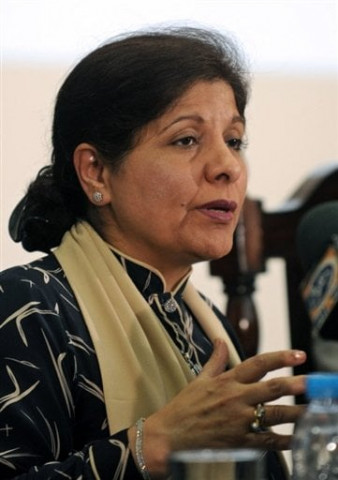State-owned enterprises discuss way forward
Regulators criticise corporations for lack of transparency.

While SOEs came under fire for their lack of transparency during a roundtable session arranged by the Centre for International Private Enterprises (CIPE) in collaboration with the Ministry of Finance and the Securities and Exchange Commission of Pakistan (SECP) on Thursday, a majority of the SOE representatives present on the occasion seemed to approve of the overall thrust of the Public Sector Companies (Corporate Governance) Regulations 2012 draft.
After getting copies of the 21-page draft of the proposed legislation, the audience listened to the presentations of former State Bank of Pakistan Governor Dr Shamshad Akhtar and former president of the Institute of Chartered Accountants of Pakistan (ICAP), Syed Asad Ali Shah, on the state of Pakistan’s public sector companies in comparison with those operating in other countries.
In her presentation, Akhtar was highly critical of SOEs for a variety of reasons, particularly the weak capacities of states to run businesses.
According to a 2011 survey of the Organisation for Economic Co-operation and Development (OECD), the combined value of SOEs companies was close to $2 trillion, she said, adding that the public sector was still dominant because the world’s largest oil and gas companies, port operators, airlines, mining and insurance companies are controlled by the government.
“SOEs make up for 80% of the value of stock exchanges in China, 62% in Russia and 48% in Brazil. They accounted for one-third of foreign direct investments during the 2000s,” she said.
Akhtar also called for the removal of entry and exit barriers in the sectors of the economy that had traditionally been the domain of public-sector enterprises.
She said these companies were awarded privileged access to land, networks and distribution rights; exemptions from regulations and laws, such as competition and bankruptcy laws; exemptions from licensing; access to capital through development budgets, sovereign guarantees, export credit and preferential trading arrangements besides explicit and implicit subsidies.
“However, these privileges nurtured management complacency and inefficiencies and hamper operations of private companies.”
Currently, about 23 SOEs are listed on the Karachi Stock Exchange (KSE), but they constitute one-third of market capitalisation, according to her presentation.
She made many suggestions to turn around Pakistan’s SOEs, but put special emphasis on the merit-based appointment of CEOs and boards of directors and defining their respective roles and responsibilities.
The representatives of SOEs present on the occasion suggested a number of changes to the draft. One participant raised the question as to why the proposed legislation did not take into account the SOE-driven model adopted by China even when western economies also seemed to inclined towards nationalisation after the 2008 financial crisis.
Published in The Express Tribune, June 22nd, 2012.



















COMMENTS
Comments are moderated and generally will be posted if they are on-topic and not abusive.
For more information, please see our Comments FAQ